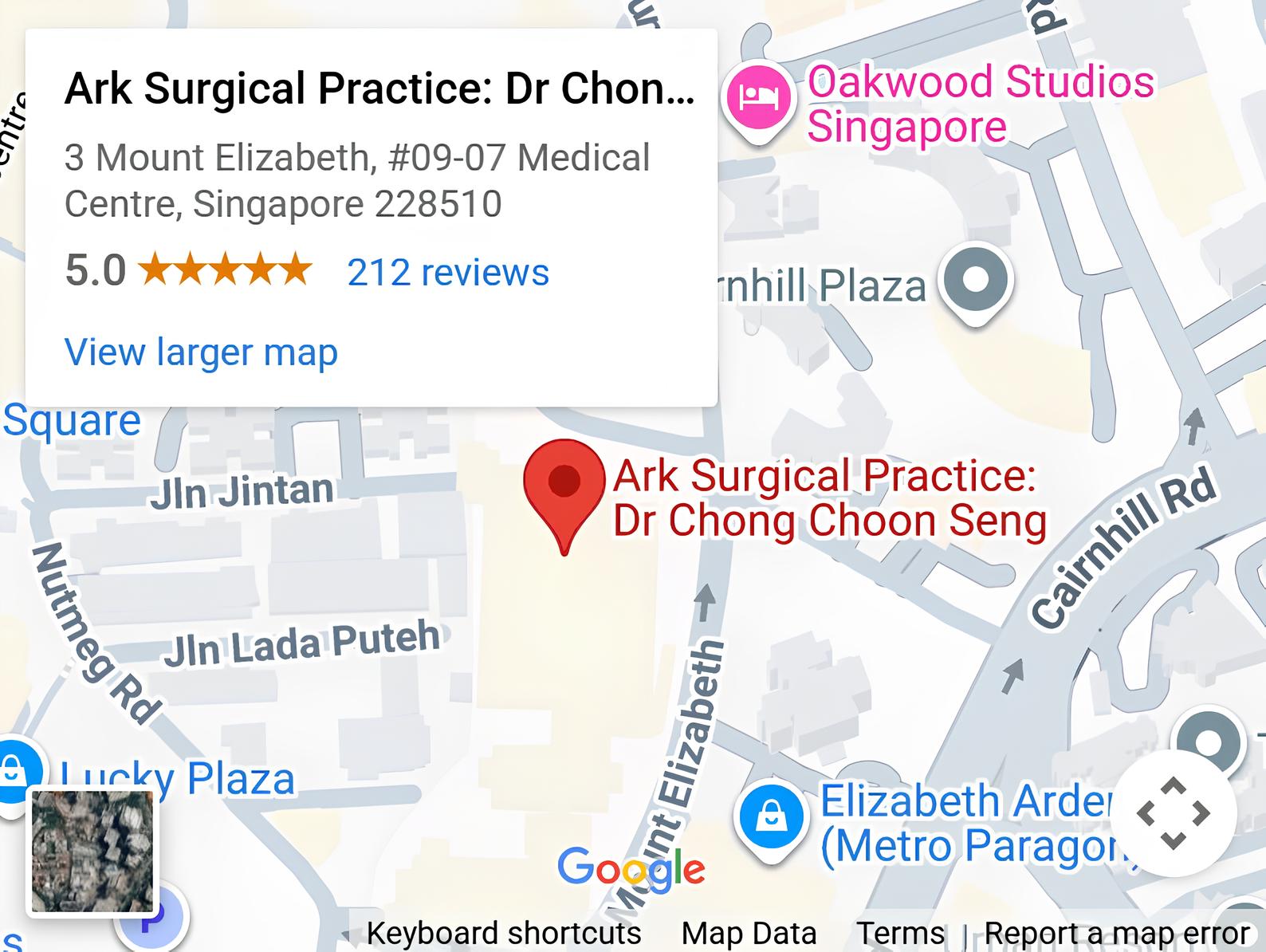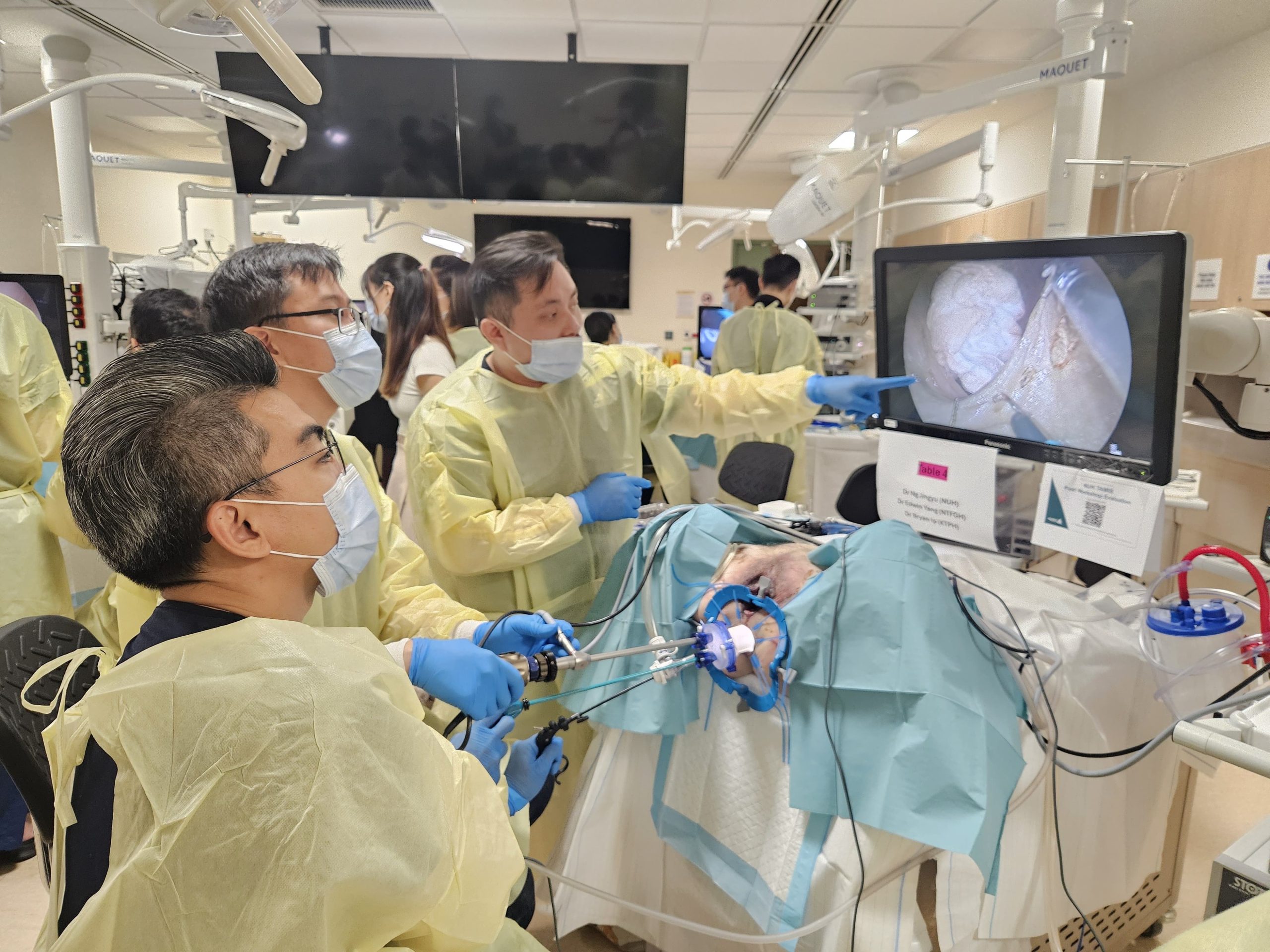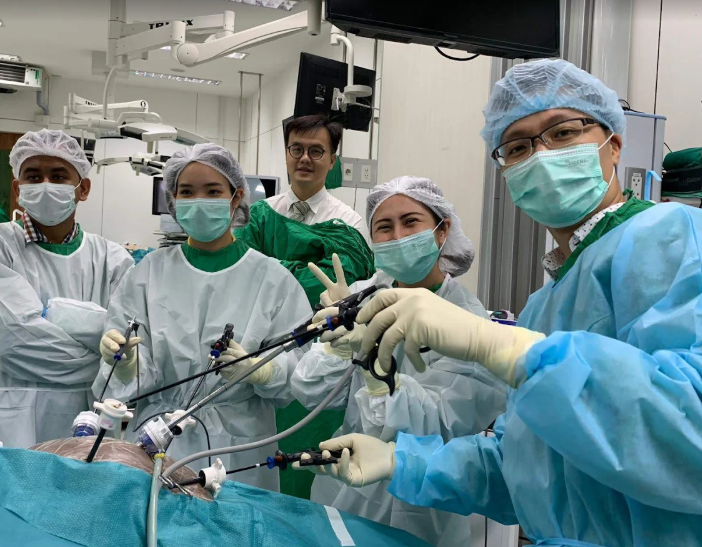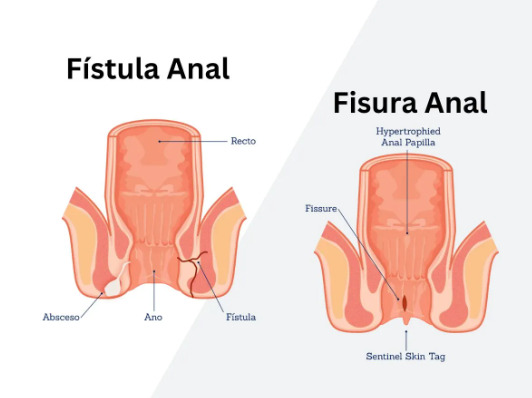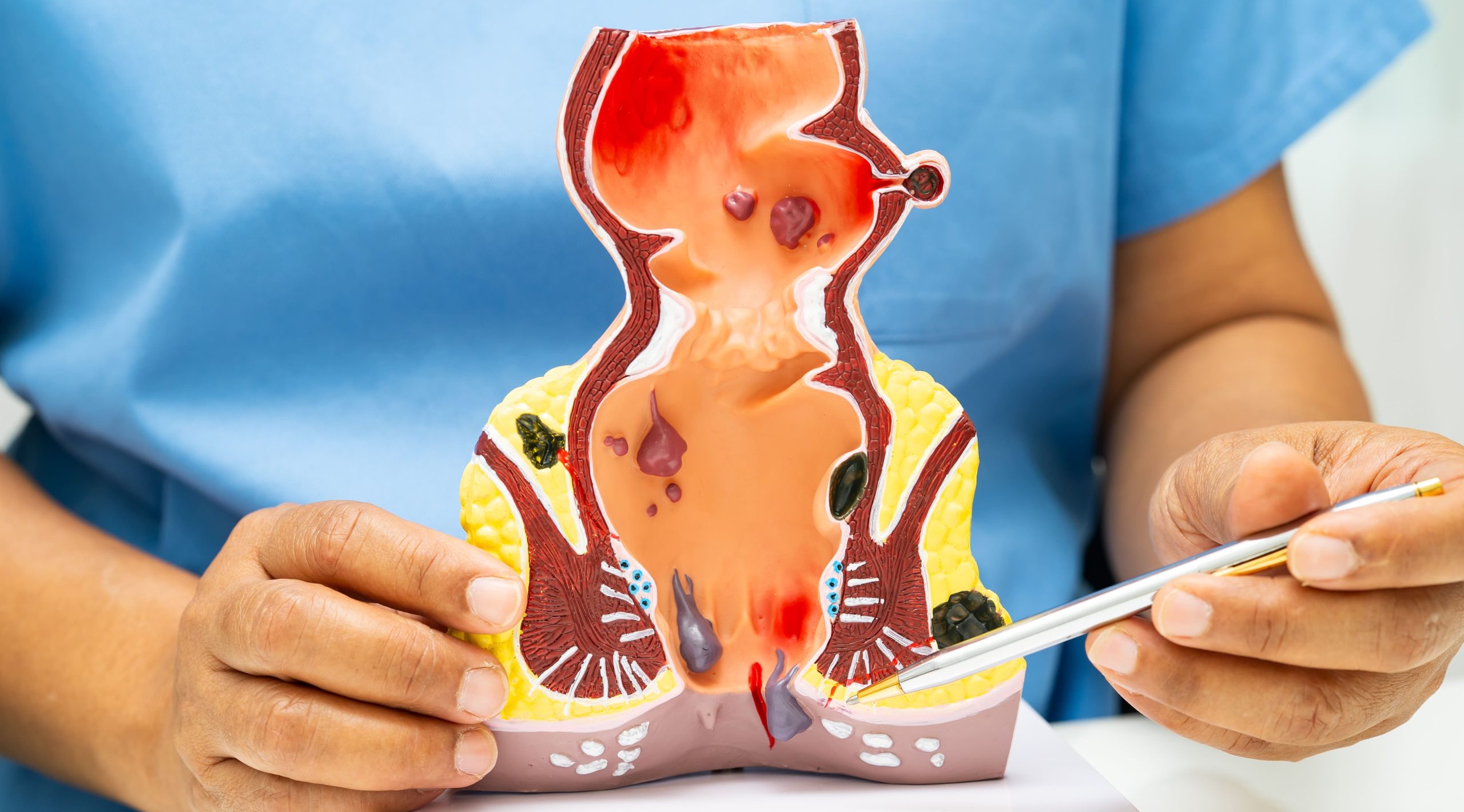Do you know that anal fistulas affect approximately 1 in 10,000 people annually, yet surgical costs can vary by up to 400% depending on the procedure complexity? Anal fistula surgery costs in Singapore range from $3,000 to $15,000, depending on the complexity of the fistula and the surgical technique required. Simple fistulotomy procedures typically cost $3,000-$5,000, while complex procedures involving advancement flaps or LIFT (Ligation of Intersphincteric Fistula Tract) techniques range from $8,000-$15,000. These figures include surgeon fees, anaesthesia, and day surgery facility charges but exclude pre-operative investigations and post-operative medications.
The type of fistula directly impacts both the surgical approach and associated costs. Low trans-sphincteric fistulas often require straightforward fistulotomy, while high trans-sphincteric or supra-sphincteric fistulas may require sphincter-preserving techniques that involve longer operating times.
Types of Anal Fistula Surgery and Their Costs
Fistulotomy
Fistulotomy is a treatment option for simple, low-lying fistulas that involve minimal sphincter muscle. The surgeon opens the entire fistula tract, allowing it to heal from the bottom up as an open wound. This procedure takes 20-30 minutes under general or regional anaesthesia.
Recovery involves daily wound dressing for 4-6 weeks. Many simple fistulas heal successfully, though patients with complex anatomy may require additional interventions.
Seton Placement
Seton procedures involve placing a surgical thread through the fistula tract to promote controlled drainage and gradual healing. Cutting setons slowly cut through the sphincter muscle over 6-8 weeks, while loose setons maintain drainage without cutting tissue.
Some patients require seton placement for 3-6 months before definitive surgery.
The technique suits high trans-sphincteric fistulas where immediate fistulotomy risks incontinence. Colorectal surgeons often combine seton placement with subsequent advancement flap procedures.
Advancement Flap Repair
Advancement flap procedures preserve sphincter function by closing the internal fistula opening with healthy tissue. The surgeon mobilizes a flap of rectal mucosa and underlying muscle to cover the defect, allowing the external tract to heal naturally.
This procedure requires 60-90 minutes of operating time. The approach suits patients with anterior fistulas in women, those with inflammatory bowel disease, or individuals with previous failed surgeries.
Obesity, smoking, and Crohn’s disease can reduce effectiveness. Failed flaps may require conversion to alternative techniques or repeat procedures.
LIFT Procedure
The LIFT technique involves identifying and ligating the fistula tract within the intersphincteric space, preserving both internal and external sphincter muscles. Surgeons access the tract through a small incision between the sphincter muscles, divide it, and close both ends.
LIFT procedures require specialized training and meticulous dissection. Operating time averages 45-60 minutes, with most patients discharged the same day.
Primary healing occurs in many cases, with minimal risk to continence. Failed LIFT procedures leave anatomy intact for subsequent surgical options, making this a treatment approach for complex fistulas.
Factors Affecting Surgery Costs
Fistula Complexity
Complex fistulas involving multiple tracts, horseshoe configurations, or high sphincter involvement require longer operating times and specialized techniques. These cases often need pre-operative MRI imaging to map anatomy accurately.
Recurrent fistulas after previous surgery present additional challenges. Scar tissue complicates dissection, while altered anatomy may limit surgical options. Surgeons may need to perform procedures in stages, increasing overall costs.
Hospital vs Day Surgery Centre
Private hospital admission typically adds significant costs compared to day surgery centres. Hospital fees include ward charges, operating theatre surcharges, and consumables. Most anal fistula surgeries qualify for same-day discharge unless complications arise.
Day surgery centres offer cost-effective alternatives for straightforward cases. These facilities maintain full operating capabilities while eliminating overnight stay costs. Patients must arrange post-operative care at home and transportation after anaesthesia.
Surgeon’s Expertise
Colorectal specialists charge higher fees than general surgeons, reflecting additional training in complex anorectal procedures.
Fellowship-trained colorectal surgeons often have experience with complex fistulas, which may be associated with reduced revision surgery rates. Their experience in sphincter-preserving techniques may be reflected in the initial costs through improved continence preservation.
Pre-Operative Costs
Diagnostic Procedures
MRI pelvis with fistula protocol provides detailed tract mapping for surgical planning. This imaging identifies secondary tracts, abscesses, and sphincter involvement that influence surgical approach.
Endoanal ultrasound offers alternative imaging for simple fistulas. While less comprehensive than MRI, ultrasound adequately evaluates low trans-sphincteric fistulas.
Examination under anaesthesia (EUA) may be recommended for accurate assessment when clinic examination proves inadequate.
Laboratory Tests
Pre-operative blood tests including complete blood count, renal panel, and coagulation studies are required. Patients over 40 require ECG and chest X-ray for anaesthetic clearance.
Diabetic patients need HbA1c testing to ensure optimal glucose control before surgery. Poor glycemic control increases infection risk and delays wound healing.
Post-Operative Expenses
Follow-up Consultations
Post-operative visits cost $100-$200 per consultation in private practice. Most patients require 3-4 follow-ups over 2-3 months to monitor healing. Complex cases may need monthly reviews for 6 months.
Wound assessment and silver nitrate cauterization for granulation tissue add $50-$100 per treatment. Some patients develop excessive granulation requiring multiple cauterization sessions.
Medications and Wound Care
Post-operative medications including antibiotics, analgesics, and stool softeners cost $100-$200 for a two-week supply. Metronidazole and ciprofloxacin are antibiotic options for anal fistula surgery.
Daily dressing supplies cost $50-$100 monthly, including gauze, saline, and waterproof dressings. Specialized wound products like honey-based or silver-impregnated dressings increase costs but may support healing.
Home nursing services for wound care charge $50-$80 per visit. Patients unable to perform self-care may require daily nursing for the first two weeks, adding $700-$1,120 to recovery costs.
Recovery Timeline and Associated Costs
Time Off Work
Most patients require 1-2 weeks medical leave after fistulotomy, extending to 2-3 weeks for complex procedures. Desk-based workers often return earlier than those in physical occupations. Self-employed individuals should factor income loss into total treatment costs.
Complete wound healing takes 4-8 weeks for simple fistulotomy and 8-12 weeks for complex procedures. During this period, patients need daily sitz baths and careful wound hygiene.
Potential Complications
Wound infection can occur, requiring additional antibiotics ($50-$100) and possibly wound debridement ($500-$1,000). Delayed healing beyond 12 weeks may necessitate examination under anaesthesia to exclude residual disease.
Recurrent fistulas can develop depending on initial complexity. Revision surgery costs mirror primary procedures, though technical difficulty may increase surgeon fees by 20-30%.
Minor incontinence affects some patients after fistula surgery, particularly following fistulotomy involving significant sphincter division. Pelvic floor physiotherapy ($100-$150 per session) helps restore sphincter function over 8-12 sessions.
💡 Did You Know?
Anal fistulas rarely heal spontaneously due to constant bacterial contamination from the bowel. The epithelialized tract prevents closure, making surgical intervention necessary for definitive treatment.
What Colorectal Surgeons Say
Accurate pre-operative assessment determines surgical success more than any other factor. Complex fistulas benefit from MRI mapping to identify all tract extensions, while thorough examination under anaesthesia reveals features missed during clinic assessment.
Patients often underestimate recovery requirements after anal fistula surgery. Daily wound care demands dedication, while activity restrictions affect quality of life for several weeks. Setting realistic expectations prevents disappointment and ensures compliance with post-operative instructions.
Choosing surgeons with colorectal training may help optimize outcomes for complex cases, potentially avoiding revision procedures.
Putting This Into Practice
- Request detailed cost breakdowns from your surgeon’s office, including facility fees, anaesthesia charges, and potential additional costs for complex findings during surgery
- Schedule surgery timing to accommodate recovery needs, considering work commitments and availability of home support
- Arrange wound care supplies and home nursing services before surgery to ensure smooth post-operative recovery
- Document all symptoms and previous treatments to help your surgeon select an appropriate surgical technique
When to Seek Professional Help
- Persistent anal discharge lasting more than two weeks
- Recurrent perianal abscesses requiring repeated drainage
- Pain during bowel movements with visible external opening near the anus
- Fever with perianal swelling suggesting abscess formation
- Previous fistula surgery with return of discharge or pain
- Difficulty controlling gas or stool after previous anal surgery
Commonly Asked Questions
Does Medisave cover anal fistula surgery?
Medisave covers anal fistula surgery procedures. Complex fistula surgeries qualify for higher coverage limits. Patients should verify coverage limits with their healthcare provider before surgery.
How long before I can return to exercise?
Light walking begins immediately post-operatively to prevent venous thrombosis. Swimming pools should be avoided for 6 weeks until complete wound healing. Return to vigorous exercise and heavy lifting should be discussed with your healthcare provider, as timing varies based on the procedure type and individual healing.
Will the fistula heal after surgery?
Simple fistulotomy has cure rates for low trans-sphincteric fistulas. Complex procedures like advancement flaps and LIFT show variable success rates. Crohn’s disease, previous radiation, and multiple prior surgeries may affect healing likelihood.
What happens if the first surgery fails?
Failed primary surgery requires reassessment with MRI imaging to identify missed tracts or underlying pathology. Revision options include repeat procedure with the same technique, conversion to alternative approaches, or long-term seton drainage for disease control.
Can I choose local anaesthesia instead of general?
Simple fistulotomy may proceed under local anaesthesia with sedation. Complex procedures require general or regional anaesthesia for adequate muscle relaxation and surgical exposure.
Next Steps
Surgical costs vary significantly based on complexity and technique. Request detailed cost breakdowns, schedule surgery timing appropriately, and arrange wound care supplies before the procedure. Early consultation allows proper assessment and surgical planning before complications develop.
If you’re experiencing persistent anal discharge, recurrent abscesses, or pain during bowel movements, consult a colorectal surgeon for evaluation and treatment options.


